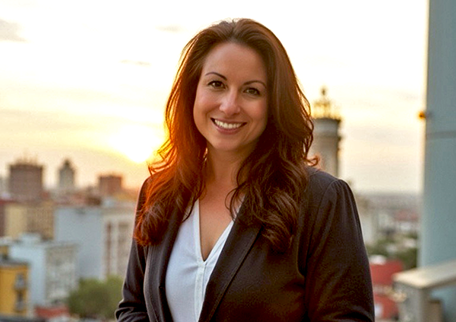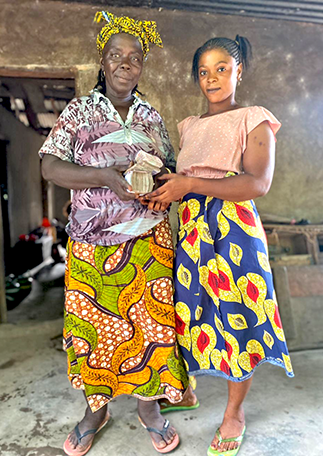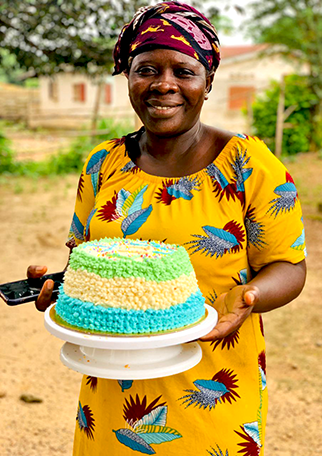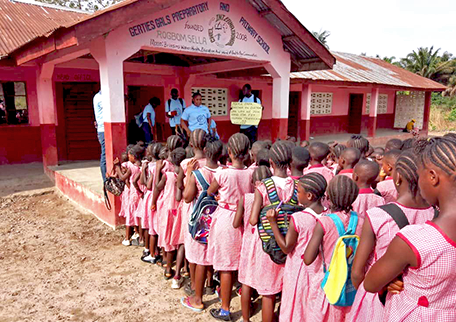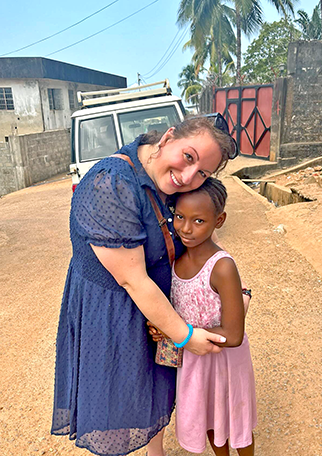Real Life Stories: People Trafficking in Sierra Leone (Sierra Cares Foundation)
The latest in our series of partner interviews is with Kelly Dore. Her story was compiled by Liluye staff writer Sylvia Nalubega. Kelly is the Executive Director at Sierra Cares Foundation, an organization assisting women and children who are vulnerable to poverty, exploitation, lack of food, and housing in Sierra Leone.
To watch Kelly’s interview, please watch below:
This is the Liluye interview of Kelly:
What are the specific mission and goals of your organization?
The Sierra Cares Foundation was founded in 2020 to provide sustainable living for women and children who are vulnerable to poverty, disease, exploitation, and lack of education in Sierra Leone. As a child survivor of trafficking, I am very passionate about addressing human trafficking, especially in West Africa. We work in Sierra Leone primarily, but we actually help repatriate migrants, men, and children who have been recruited to work in the Middle East. For many who get there, they discover that it is more of an exploitative and slave situation where they end up being full-time domestic servants, or labor trafficked. Some are even sexually abused and assaulted by their employers. Since 2020, we’ve recovered nearly 6,700 women, girls, and boys.
Once repatriated, we provide educational programs, including catering, baking, tailoring, and other life skills to support survivors in recovery and empowerment. The Sierra Cares Foundation has the Hope Center which serves as a safe space for repatriated women and vulnerable individuals in the Makeni community (where the organization is based). It includes facilities for education in literacy, wellness, mental health, maternal health, and financial literacy. The space serves as a trauma-informed rehabilitation facility in Makeni for repatriated women and girls rescued from trafficking, abuse, and forced marriage. The center accommodates these educational initiatives and now a mental health program specifically for trauma and trafficking survivors while also serving as a community center.
Additionally, we have a garden property and have successfully brought water and electricity to this vulnerable community. The accompanying agriculture program teaches migrants and community members to work together to raise goats, chickens, and gardens for sustainable food. This is important because many of them hunt wild monkeys and as a result they can get infections and other communicable diseases. We want to give them the opportunity to learn to be caregivers of their community and planet as well as have safe meat and food to consume.
Moreover, we are taking care of 169 children who were orphaned during the Ebola outbreak of 2016/19. This means we work with host families to take care of them and are in the process of building an orphan care center for boys and girls to ensure that they complete their education. We are also very focused on their security to ensure they aren’t lured into trafficking, or promised opportunities that seem good on the outside. We plan to support the children all the way through university and beyond to help some get placed into secure jobs. Even though it is an impossible task to try to get everyone full-time jobs, our goal is long-term sustainability and community cohesion.
Our future goals also include establishing a maternal and medical care site to address basic needs and resources related to pregnancy, healthy parenting, reproductive health, and care for survivors of sexual abuse.
How did you first get involved in being part of this work? In other words, what motivated you, or still drives you, to work on the issue of trafficking? Can you share a personal story?
I have been involved in writing human rights and anti-trafficking policies for nearly 15 years now and have traveled to many countries. In 2019, I was volunteering with Airline Ambassadors (AA) and met fellow board members and now, dear sisters, Abeni and Andrea. AA was helping Ibrahim Bangura for a year, and we realized how amazing they all were. As a result, we created and incorporated Sierra Cares Foundation in the U.S. to fundraise and share their stories. Incidentally, Ibrahim has been running the organization in Sierra Leone for over a decade, with the help of his uncle who has since passed away and had immigrated to the U.S. He continues to be the Country Director and carries on his uncle’s mission of protecting vulnerable children. Sierra Cares Foundation is more than a story. It is a family brought together by our love for each other, humanity, and all of God’s children.
Share with us some of the things you are doing to support survivors of trafficking, or to prevent those who are vulnerable from going through it?
Because I’m someone who understands mental health and am a survivor, I consult for the State Department in the U.S. and Federal Investigation Bureaus. I have designed and rolled out the first mental health programs for survivors in Africa. As a result, we have seen a lot of changes over the past two years.
In particular, since the mental health roll out, we have seen a 100% graduation rate from our programs and a 98% success rate for the migrants we have repatriated back to Salone (or Sierra Leone). We are walking with them for the long-term as each individual has different needs and beliefs. We see the dignity in all of them, and work to help them see that they are worth loving and are not defined by what happened to them.
In addition, since the last decade in this work, I have helped to craft, author, and support the passing of over 250 pieces of legislation to protect vulnerable and exploited peoples around the world. I have been able to use some of my own personal experiences, like what worked for me as a child and what didn’t.
What kind of support do you need for your work?
Sierra Cares Foundation is fundraising for the community center to expand our outreach in rehabilitating survivors of human trafficking and vulnerable children.
Funding is always a top priority because we believe in empowering Salonen’s to do the work in their own communities. None of our U.S. board members take a salary and 100% of what we raise goes to the survivors, children, and programs. We also know the power of prayer.
We can always use some staffing support in the U.S., too.
We gladly take anyone with us to visit and fall in love with our Salonen family.
Reach out to us to find out more about staffing support and visits to our organization in Sierra Leone on our links below.
Where to send funding for your work?
To fund the work of Sierra Cares Foundation, please donate through their website: https://donorbox.org/scf-donations.
To find out more about Sierra Cares Foundation:
Visit Sierra Cares Foundation on the web: Sierra Cares Foundation
Visit Sierra Cares Foundation on Facebook: Sierra Cares Foundation
Visit Sierra Cares Foundation on Instagram: Sierra Cares Foundation
For more information about Liluye or to inquire about becoming a partner, please visit: www.liluye.org/contact. Or, if you are interested in donating to Liluye, please visit: www.liluye.org/donate.
Kelly was interviewed by Liluye staff writer Sylvia Nalubega who also writes a blog, Sanyu Centre for Arts and Rights. Sylvia’s personal message to everyone is, “We live beyond ourselves by sharing our story to hopefully impact a person.”

